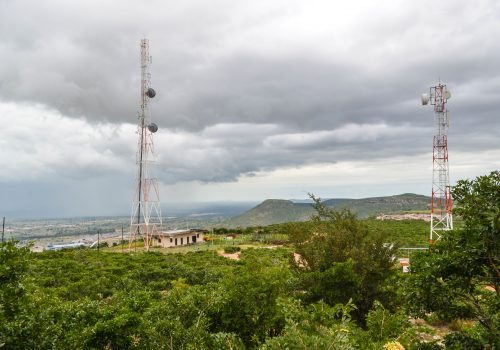Priorities for US-Africa commercial policy in the Biden Administration
Introduction
With a renewed focus on multilateralism, President Joe Biden, in his first one hundred days, has actively been reengaging with traditional US allies and partners repeatedly sidelined by the Trump administration. African countries have been included in this effort. When addressing the African Union Summit of African presidents in February, he reaffirmed the United States’ commitment to partnering with African nations to address challenges including climate change and erosion of democratic institutions. Biden has gained widespread praise for supporting the appointment of Dr. Ngozi Okonjo-Iweala as the first African head of the World Trade Organization (WTO), nominating officials who have deep experience in African markets to Cabinet positions, such as Linda Thomas-Greenfield as ambassador to the United Nations, and putting together a historically diverse government, including many senior members of the African diaspora. Building on this early progress, Biden has an opportunity to reset US-Africa policy by not only prioritizing it at a level unseen during the last four years, but also changing the long history of siloing Africa policy.
The Biden administration should look to further integrate African nations into broader US foreign policy, acknowledging Africa’s increasing importance to US priorities and enhanced standing on the global stage. Doing so will allow the new administration to deepen commercial and people-to-people ties with African nations, benefiting US businesses, furthering US interests, and working to address global challenges, such as public health and climate change. This more multifaceted and nuanced engagement with African states will set a foundation for stronger US-Africa partnerships, support mutual economic growth, and contribute to strengthening US global leadership.
While cooperation with African states is critical to regional stability and global security, this issue brief sets aside security policy and focuses on ways the Biden administration can strengthen its commercial policy and public diplomacy with African nations. This effort includes building on commercial policies started under the Trump administration, facilitating green growth, and deepening people-to-people ties. In doing so, Biden’s domestic priorities of promoting diversity and climate responsibility will be reflected in Africa policy and ensure US businesses can take advantage of increasing opportunity in African markets and remain competitive globally.

This report is part of the Africa Center’s Afro-Century Initiative, founded in partnership with the Africa Finance Corporation. The Initiative champions a novel coalition of African development finance institutions to forge a more authentic, optimistic narrative on Africa.
Report author
Related content

The Africa Center works to promote dynamic geopolitical partnerships with African states and to redirect US and European policy priorities toward strengthening security and bolstering economic growth and prosperity on the continent.
Image: Then-US Vice President Joe Biden addresses the U.S.-Africa Business Forum in Washington on August 5, 2014. The forum is part of the U.S.-Africa Leaders Summit, bringing nearly fifty African heads of state together for three days of meetings and events. Photo credit: Reuters/Jonathan Ernst.



